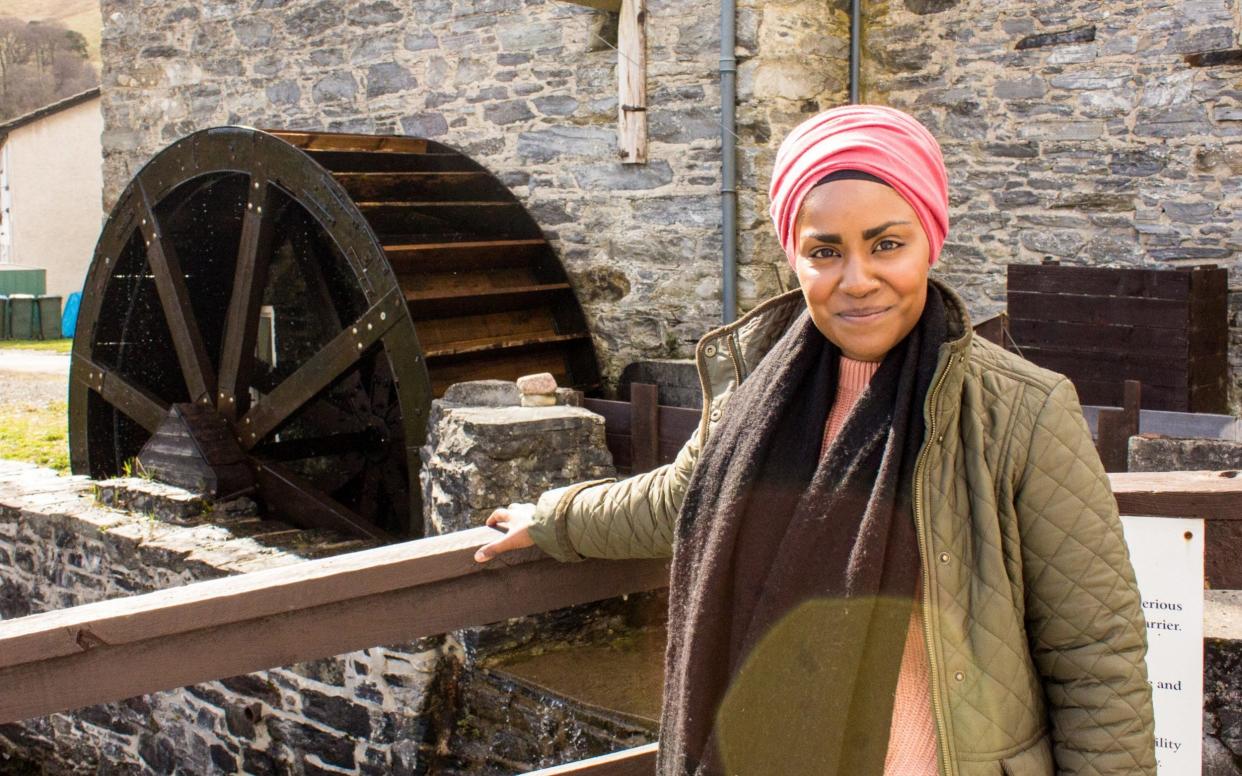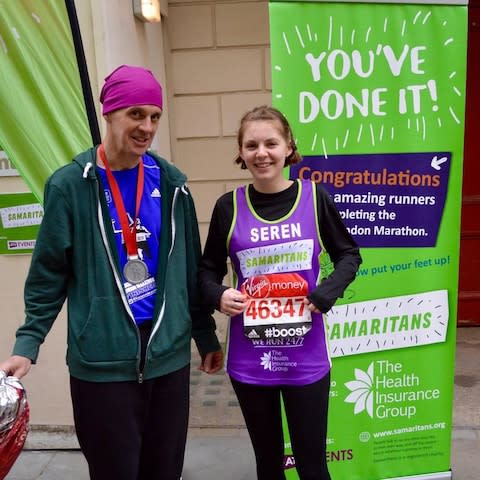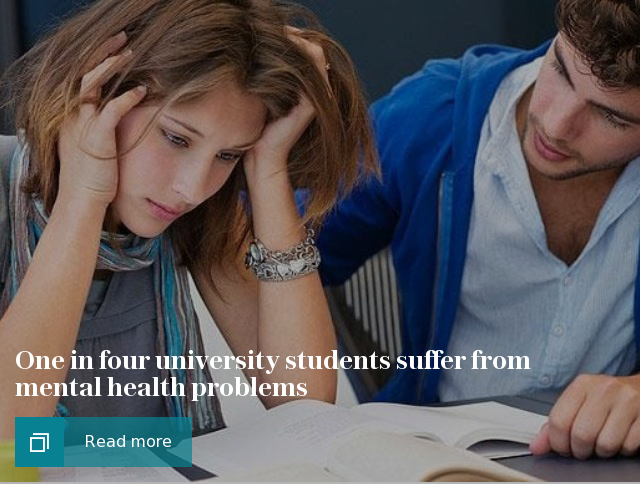Like Nadiya Hussain, I know what it's like to live with the panic attack 'monster'

In a recent interview with comedian John Bishop, Nadiya Hussain spoke openly about her battle with panic disorder, comparing her life with the disease to "living with a monster".
"My whole life revolves around not falling apart," said the former Great British Bake Off winner. "Some days the monster shouts in my face, no matter where I turn he will keep shouting at me, I can’t get him out of my face.
"I’ve spent my whole life trying to find a cure. You’ll go to the doctors and they will give you pills and then you just won’t feel anything. What’s the point in not feeling anything?
"It’s never going to go away, I have to learn to live with my monster, he’s always going to be there."
Her comments come after Prince Harry candidly revealed to The Telegraph's Bryony Gordon that he suffered from panic attacks as a result of his mother's death. Harry said the attacks would leave him "pouring with sweat, heart beating bop, bop, bop, bop."
According to mental health charity Mind, panic attacks are a type of fear response. They're an exaggeration of your body's normal response to danger, stress or excitement.
What is it like living with a panic disorder?
We spoke to Seren Pritchard-Bland, a third year university student and a volunteer at Mind, to find out how she copes. In April, Pritchard-Bland ran a marathon in support of Heads Together, the Duke and Duchess of Cambridge and Prince Harry’s campaign with her father David Bland, the chief executive officer of Newport Mind.
"I’ve been having panic attacks since my dad got ill, when I was about 17. He had a cardiac arrest and had to be signed off work for three months, which was really tough for him. I had the added stress of sixth form, and had to deal with his mood swings, which resulted from the medication he was on. There were also a couple of deaths in the family, and the way everyone was reacting to it meant it was quite a hectic time.
All of the things I’m worried about whirr around in a loop
"Generally, I know that if I drink too much or it’s crowded, or if I’m in a busy place and I can’t see a clear exit, it gets me really stressed. Normally, when I start having a panic attack, I just need to get out of wherever I am and go somewhere I can feel the air. I try to get outside, have a glass of water and focus on my surroundings.
"It can be anything that brings on a panic attack. I had one yesterday that was triggered by not being able to find my purse quick enough in a rush. In those situations, all of the things I’m worried about whirr around in a loop. It’s really intense.

"I get really hot and bothered, and sweaty, and clammy. I can’t see straight, and I normally find it really difficult to breathe normally. It’s almost as if I’m gasping for air, because I’m breathing so quickly and really deeply. It takes a while to get it back to normal. It’s like that hiccup-y breathing that you get when you’re crying really hard.
"They all feel like the worst thing ever at the time you’re experiencing them. How often I have them depends on what I’ve got going on in my life. If I’m particularly stressed or I’ve got stuff going on, or I’m not getting enough sleep and I’m spreading myself too thin, that’s when the cracks begin to show. I have to make sure that I’m eating enough and exercising.

"I remember being on nights out in the first year of university and there’d be lights flashing and music changing tempo, and I’d feel a need to escape and have to run out of the club really quickly. It was an added hurdle being around new people. It's worse when it’s something you think you should be enjoying.
While we were training together, we were able to have conversations with each other about mental health
"I also get nervous about social situations - even just walking into a room. At a lot of events I have to arrive really early so that I’m one of the first people in the room. I hate walking into a room with a closed door. That puts me really on edge, and can give me a panic attack.
"There would be times in my first year when I’d have a panic attack about going to a lecture, and miss the whole day because I felt so anxious about it. Getting to know my tutors has really helped - having conversations ahead of presentations about doing them with a smaller group of people, for example. Now, I notice how many other people suffer with similar things and struggle, especially at university - but there’s still so much stigma around it.
"My dad’s goal after his cardiac arrest was to complete a marathon, so I decided to do it with him. While we were training together, we were able to have conversations with each other about mental health. Not necessarily even directly, but we were able to chat about how we were feeling and things that were going on in our lives."

How can you avoid panic attacks?
Chloe Brotheridge is a hypnotherapist and anxiety expert. The author of the bestselling The Anxiety Solution, she has experienced panic attacks first hand - which led her to set up Calmer You, an online resource for overcoming anxiety and becoming more confident.
"I first noticed signs of anxiety when I was 15 and had my first panic attack. I was sitting at a friends house and suddenly felt a wave of hot panic. My chest tightened up, it was a struggle to breathe, and my heart started to pound furiously. Everything seemed 'unreal,' like a nightmare, and I was sure I was dying of a heart attack. I begged my friend to take me to hospital.
The fears were almost impossible to switch off, making it impossible to relax and enjoy the moment
"Following this experience, I felt I couldn't trust my body and feared that panic could strike at any moment. I developed a strange preoccupation with what my breathing was doing, and would get fixated on aches and pain in my body, convinced they were something more sinister. I also developed other worries which had an obsessive quality - about money, what I had or hadn't achieved that day and what I had eaten. The fears were almost impossible to switch off, making it impossible to relax and enjoy the moment.

"Meeting my boyfriend eight years ago was a turning point for me. I knew I was going to drive him away unless I made some changes. He supported me in opening up and getting help. Now, I've made enormous progress and become a much calmer, happier person. I trained as a hypnotherapist and coach and now help others who are going through what I went through."
Here are five techniques that helped Chloe to deal with her panic attacks:
1. Meditation
Don't be put off by the idea that you have to sit crossed legged, Zen master style, and block out thoughts. It's simply a brain training exercise that changes the structure of your brain to make you more optimistic and calm. When you meditate regularly, you grow more gray matter in the frontal cortex (this improves emotional reasoning) and reduce the size of your amygdala (responsible for the fight or flight response).
Start with ten minutes a day and don't beat yourself up if you're not 'good' at it right away; it's called meditation 'practice' for a reason.
2. Float, don't fight
Many of us resist and fight against the feeling of anxiety and panic, but as Carl Jung said, 'what you resist, persists.' Instead of battling to suppress your nerves, allow the feelings to be there, relax your body and float with the sensations.
3. Name it to tame it
Brain scans have shown that when we put our feelings into words, it calms down the fear center of the brain. Try to label your emotions and either write them down or tell a loved one or a therapist.
4. Anxiety is a teacher
We often treat anxiety as the enemy and try to get rid of it at any cost. We'll use alcohol, drugs, shopping, sex - anything to distract and numb us. But our feelings are there for a reason, and if you listen to them, they let you know what your needs are. What could your anxiety be trying to teach you? What does it want you to change, learn or heal?
5. Shake it off
When animals in the wild have experienced a fright (a near miss between a gazelle and a lion, for example), they will shake their bodies vigorously for a few seconds. Scientists recognise this as the animals way of discharging the tension and fear from their bodies. Us humans? We tend to carry that fear around, stewing in our stress hormones at our desks. So whether you shake your body, dance it around the living room, or go for a brisk walk or jog - it will help you to burn off excess adrenaline and release tension in your body.


 Yahoo News
Yahoo News 
